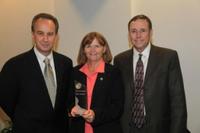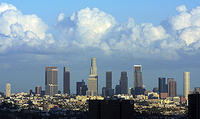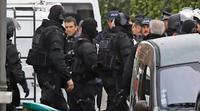-
Surface-to-air missiles to protect London Olympic Games
British security sources revealed that the security envelope developed to protect the Summer Olympic Games in London will include six Rapier surface-to-air missile (SAM) batteries. The British security forces will conduct, between 2 and 10 May, a massive exercise, called Exercise Olympic Guardian, on land, sea, and in the air in the London and Weymouth areas. For those familiar with London: For the exercise, six sites were selected for deployment of the SAM dummies: the Lexington Building in Tower Hamlets; the Fred Wigg Tower in Waltham Forest, east London; Blackheath Common; Oxleas Wood, Eltham; William Girling Reservoir, Enfield; and Barn Hill in Epping Forest.
-
-
Terrorism poses serious threat to Nigeria
The Nigerian chief of army staff, Lieutenant General Azubuike Ihejirika, said that recent terrorist attacks in Nigeria pose a challenge to the country’s security forces, making it necessary for the military and police to be more proactive. General Ihejirika spoke at the graduation ceremony of 256 students of the Special Forces’ Basic Counter Terrorism Course. The students are trained in counterterrorism and counterinsurgency operations at the Nigerian Army Counter Insurgency and Counter Terrorism Center, located in Kachia, Kaduna State.
-
-
FBI still short on terrorism experts
A report by the Government Accounting Office (GAO) says that the FBI, despite progress made in hiring terrorism experts, is still facing difficulties staffing its Counterterrorism Division (CTD)
-
-
Budget pressures lead Nevada to reduces state’s anti-terrorism programs
The Nevada Homeland Security Commission, faced with a 60 percent cut in federal homeland security funds, drastically reduced the state’s anti-terrorism programs; six programs eliminated, while remaining programs will have to manage with less
-
-
LAPD shows the way in local counterror efforts

Commander Joan T. McNamara, who heads the LAPD Counter-Terrorism and Criminal Intelligence Bureau, has devised a method which is considered so inexpensive, easily implemented, and innovative that federal authorities are considering making it a national model for local law enforcement intelligence gathering
-
-
#WeGotBinLaden: how Twitter broke its biggest story
A new study confirms the widely held belief that Keith Urbahn (@keithurbahn), an aide to former Secretary of Defense Donald Rumsfeld, was the first person to break the news regarding the killing of Osama bin Laden on Twitter; his tweet was sent at 10:24 p.m.
-
-
No Hezbollah training camps in metropolitan Detroit: FBI
FBI assistant special agent Todd Mayberry, the head of the FBI’s counterterrorism activities in Michigan, told attendees at a security conference that the Iran-supported Hezbollah has no training camps in the Detroit area
-
-
Cost of a dirty bomb attack in L.A. would reach $16 billion

A dirty bomb attack on downtown Los Angeles’ financial district could severely affect the region’s economy at a cost nearly $16 billion, fueled primarily by psychological effects which could persist for a decade
-
-
Naturally occurring enzyme to defend against chemical terrorism
Today, protection against nerve agents relies primarily on physical barriers such as gas masks and protective suits that can easily be breached; following exposure, people are treated with drugs that help with the symptoms but do not eliminate the nerve agent; researchers hope to change this, relying on the principles of evolution to produce a more efficient version of an enzyme that occurs naturally in all of us
-
-
More efficient bioterrorism response plan
In the event of a bioterror attack on a building (think: the 2011 anthrax attack on the offices of two Democratic Senators, Tom Daschle of South Dakota and Patrick Leahy of Vermont), the current approach to decontamination is to clean up the building until no pathogens can be detected; researchers suggest, however, that whether or not pathogens are found depends greatly upon how extensively the buildings are tested
-
-
New insights into terrorist threats to ground transportation
A new analysis of terrorist attacks, and attempted attacks, on ground transportation shows that from the late 1980s to the mid-1990s, terrorist groups used chemicals to attack surface transportation; from the mid-1990s on, multiple bombs became the new prototype for terrorist attacks
-
-
Formation of hate groups associated with presence of big-box stores
In a new research, economists say that the presence of big-box retailers, such as Wal-Mart, K-Mart, and Target, may alter a community’s social and economic fabric enough to promote the creation of hate groups; the researchers say that the number of Wal-Mart stores in a county is more significant statistically than factors commonly regarded as important to hate group participation, such as the unemployment rate, high crime rates, and low education
-
-
Pressure continues to remove MEK from terrorist watch-list
Prominent former U.S. officials who support the removal of the Iranian opposition group MEK from the U.S. Department of State terrorist watch-list bristle at the despite indirect warnings from the U.S. Treasury Department that their support for the group could constitute a crime
-
-
France debates its anti-terror approach

The French are debating their anti-terrorism policies in the wake of the worst terrorist attacks on French soil; the debate centers on whether or not the authorities have the right approach to combating terrorism
-
-
Torturing in interrogations tend to be unexpectedly harsh yet ineffective
Government officials have argued that “enhanced interrogation techniques” are necessary to protect American citizens, but the effectiveness of such techniques has been debated; a recent study argues that when torture is used to elicit information, it is likely to be unexpectedly harsh yet ineffective
-
More headlines
The long view
How Male Grievance Fuels Radicalization and Extremist Violence
Social extremism is evolving in reach and form. While traditional racial supremacy ideologies remain, contemporary movements are now often fueled by something more personal and emotionally resonant: male grievance.
